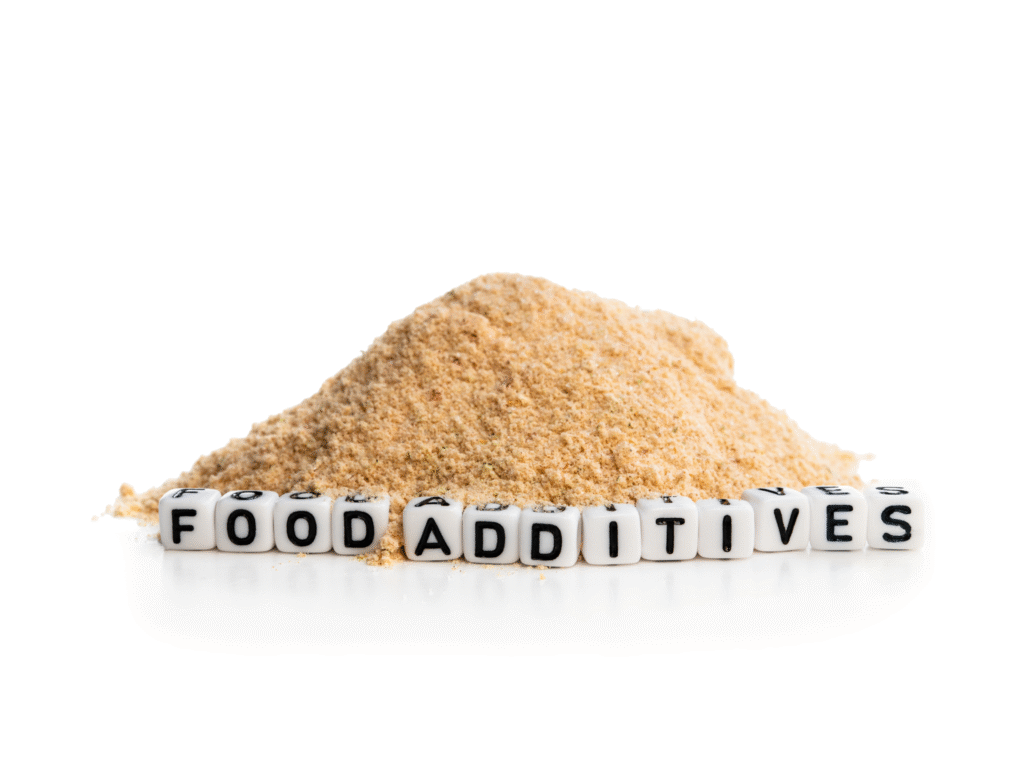What Are Food Additives and Why Are They Important?
Food additives are substances added to food products to preserve freshness, enhance flavor, improve texture, or maintain appearance. They play a vital role in the modern food industry by helping products stay safe and appealing for longer periods.
Additives are carefully tested and regulated to ensure they do not compromise food safety or quality. Their ability to extend shelf life without altering taste is crucial for reducing food waste, supporting food affordability, and providing consumers with convenient, high-quality products.

How Do Food Additives Extend Shelf Life?
Food additives help prevent spoilage caused by microbes, oxidation, and physical changes. Here are some common ways they work:
- Preservatives such as sodium benzoate and potassium sorbate prevent the growth of bacteria, molds, and yeasts that lead to food spoilage.
- Antioxidants: Substances such as ascorbic acid (vitamin C) or tocopherols (vitamin E) prevent oxidation, which can lead to rancidity and off-flavors.
- Acidity Regulators: Ingredients like citric acid maintain pH balance, creating conditions unfavorable for microbial growth.
- Emulsifiers and Stabilizers: These additives maintain product texture and prevent separation, ensuring consistency over time.
By slowing spoilage processes, these additives keep foods fresh and safe from production to consumption.
Maintaining Taste While Using Food Additives
A key challenge in using additives is preserving the original flavor and quality of food products. Modern food science focuses on selecting and formulating additives that do not interfere with taste.
- Many preservatives are tasteless or used in concentrations too low to affect flavor.
- Antioxidants protect flavor compounds from degradation, helping foods retain their intended taste profile.
- Emulsifiers and stabilizers maintain texture, which influences flavor perception and overall eating experience.
Food manufacturers carefully balance additive use to extend shelf life while ensuring products remain flavorful and enjoyable.
Food Additives Support Food Affordability and Accessibility
Food additives contribute significantly to making food more affordable and accessible globally. By extending shelf life, they reduce food spoilage and waste at every stage of the supply chain—from farms to retailers to consumers.
This improved shelf stability allows for longer transport times and wider distribution, enabling fresh and processed foods to reach distant markets without quality loss. Consequently, consumers have access to diverse food choices year-round at reasonable prices.
Are Food Additives Safe?
Food additives undergo rigorous safety evaluations by regulatory bodies such as the FDA, EFSA, and Codex Alimentarius. Only additives proven safe for consumption at approved levels are permitted in food products.
Regulations require clear labeling and ongoing monitoring to protect consumers. Continuous scientific research ensures that additives remain safe as new evidence and technologies emerge.
Consumers can trust that food additives used in their products meet high safety and quality standards.

Common Types of Food Additives That Improve Shelf Life
Here are some widely used food additives that help extend shelf life without compromising taste:
- Sodium Benzoate: A preservative effective against yeast and bacteria in acidic foods like soft drinks and salad dressings.
- Potassium Sorbate: Used in baked goods, cheese, and wine to prevent mold and yeast growth.
- Ascorbic Acid: An antioxidant that preserves color and flavor in fruit juices and processed meats.
- Citric Acid: Maintains acidity to inhibit microbial growth and enhance freshness in canned and frozen foods.
- Lecithin: An emulsifier that stabilizes textures in chocolates, baked goods, and margarine.
These additives are chosen for their proven effectiveness and minimal impact on flavor.
How Consumers Can Identify Food Additives
Food packaging lists ingredients, including additives, often identified by their common names or E-numbers in some regions. Consumers interested in learning more about additives can consult reputable sources such as government food safety agencies or independent organizations.
Understanding food additives helps consumers make informed decisions while recognizing the important role these substances play in preserving food quality and safety.
Food Additives and Shelf Life
Food additives are vital for preserving freshness and safety in food without compromising taste. By preventing spoilage and maintaining texture and flavor, they support food affordability, reduce waste, and enable global food distribution.As science and technology advance, the development of new additives and improved formulations will continue to enhance food quality and sustainability.